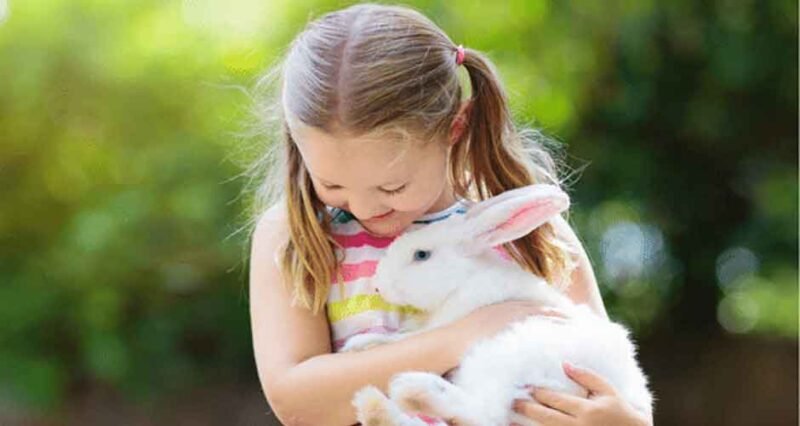
Raising children is an enormous responsibility. One of the things parents need to understand in order to do their job properly is how various aspects of life, such as animals, can influence their children’s mental health. In today’s blog post, we will explore why having a pet or being exposed to nature can be beneficial for your kids’ well-being and psychological development. We’ll also look at some potential risks associated with different types of animal interaction and provide guidance on choosing appropriate activities and experiences that are right for your family.
Therapeutic Qualities
As parents, we want our children to be happy and healthy. Did you know that animals can help with their mental health? Studies have found that spending time with animals can reduce stress and anxiety in children. Animals can provide a calming effect that is hard to replicate. The therapeutic qualities of animals can have a positive impact on children’s mental health by increasing their mood and self-esteem. Whether it’s playing with a dog or watching fish swim in a tank, animals can bring joy and comfort to our children’s lives. It’s one of the many reasons why therapy animals are becoming increasingly popular in schools and hospitals. So, if you’re looking for a way to improve your children’s mental health, consider spending time with some furry (or scaly) friends.
Teaching Responsibility
Animals can have a significant impact on your children’s mental health, not only as companions but also as a source of responsibility. By having your children care for an animal, it can teach them valuable life skills such as responsibility and compassion. The act of feeding, grooming, and providing for an animal can help children develop a sense of purpose and give them a feeling of accomplishment. Children who have pets also tend to have increased self-esteem and social skills, as they have a companion with whom they can interact and bond. Additionally, taking care of an animal can teach children empathy, as they learn to put the needs of their pet above their own desires. All in all, having an animal and teaching your children to take care of it can have a positive effect on their overall mental health.
Exposure to Nature
Exposure to nature is also an essential aspect of good mental health in kids. Residing in urban areas can limit a child’s exposure to nature and wildlife. However, this may not be an issue if the parks and forests remain accessible to the children. Being in nature can assist in reducing stress, anxiety, and depression symptoms in children. Studies have shown that children who spend time in nature display better cognitive, behavioral, and emotional health in respect to those living in urban regions. Exposure to nature provides numerous therapeutic benefits for kids, including improved mental clarity, concentration, and mood. Encourage your kids to go outdoors for fun activities such as hiking or camping, and they may get lifetime benefits.
Improving Education
Visiting a local zoo or aquarium can provide an excellent opportunity for children to learn about different species and their ecosystems. These visits can stimulate curiosity and provide a sense of awe and wonder, helping to develop emotional intelligence. Moreover, by interacting with animals, children can learn empathy and compassion, valuable skills that can benefit their relationships with others. Therefore, if you want to broaden your children’s horizons and boost their mental health, consider taking them to a zoo or aquarium near you.
Volunteering with Animals
Did you know that volunteering with animals can have a positive impact on your children’s mental health? Studies have shown that spending time with animals can decrease stress and anxiety levels, even improving self-esteem and overall mood. The act of volunteering and giving back to the community can also help build a sense of purpose and belonging in children. Volunteering often involves responsibility, communication and teamwork with others, which are all skills that can benefit children in various aspects of their lives. Whether it’s at a local animal shelter, wildlife rescue center, or pet therapy program, volunteering with animals can provide a rewarding experience for both children and animals alike.
Be Careful Around Wildlife
It’s essential to be careful about the animals that your children interact with. Some animals that you keep as a pet may be unhealthy for your child’s health. Wild animals can pose serious risks to your kids. It’s recommending choosing the right type of animals that you can keep in your home garden safely and comfortably. Choose rescue animals or those that are domesticated to avoid any harm to your family and your pets. Also, supervise your children when interacting with animals, including petting and feeding them.
In conclusion, animals can have a positive impact on your children’s mental health. Pets and nature offer numerous benefits to kids, including reduced stress levels, improved cognitive development, emotional regulation, and social awareness. Spending quality time with animals is an excellent way to bond with your kids and teach them critical life skills such as responsibility, empathy, and compassion. However, parents should be cautious when exposing their children to animals and nature, as some activities may pose risks. Engage your kids in safe and age-appropriate animal interactions and nature-related activities for a healthy and happy childhood.

